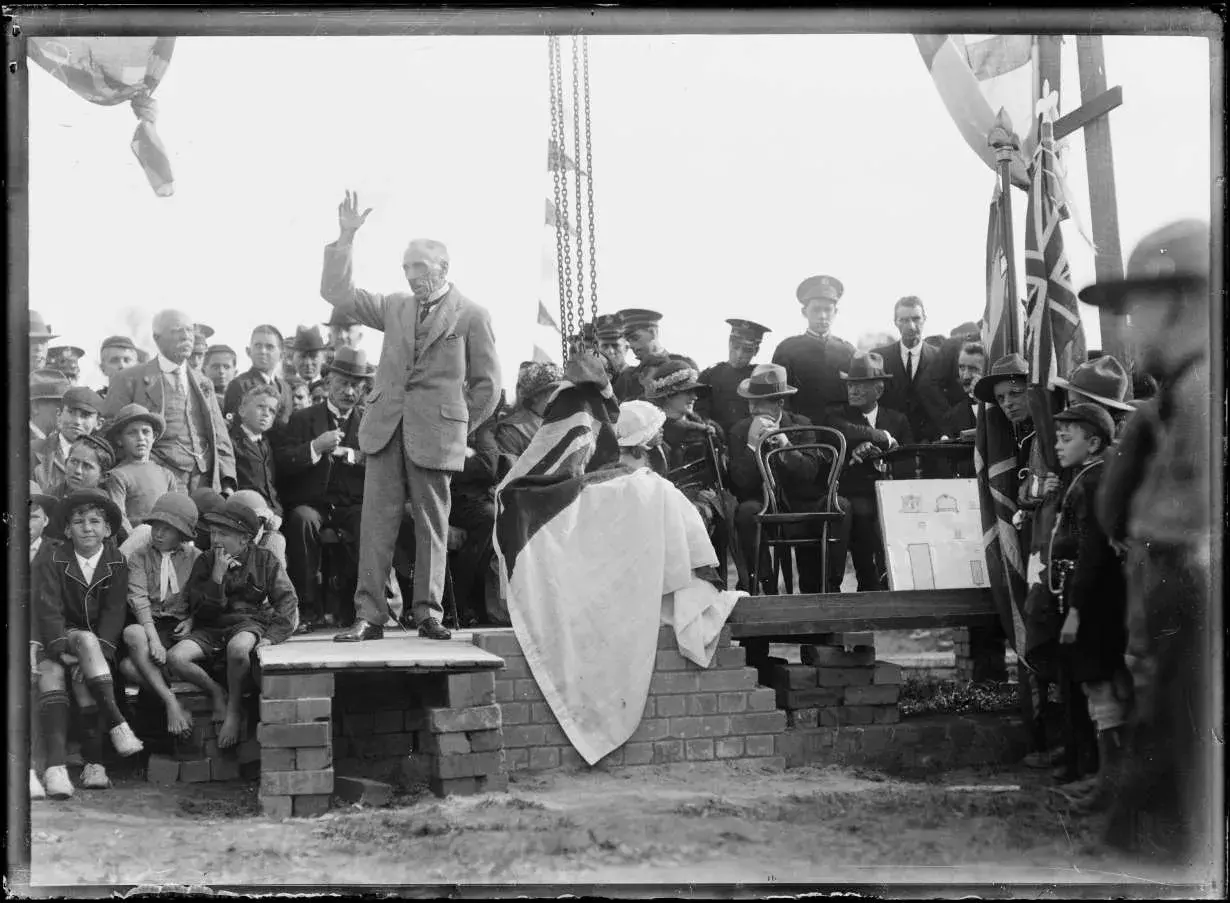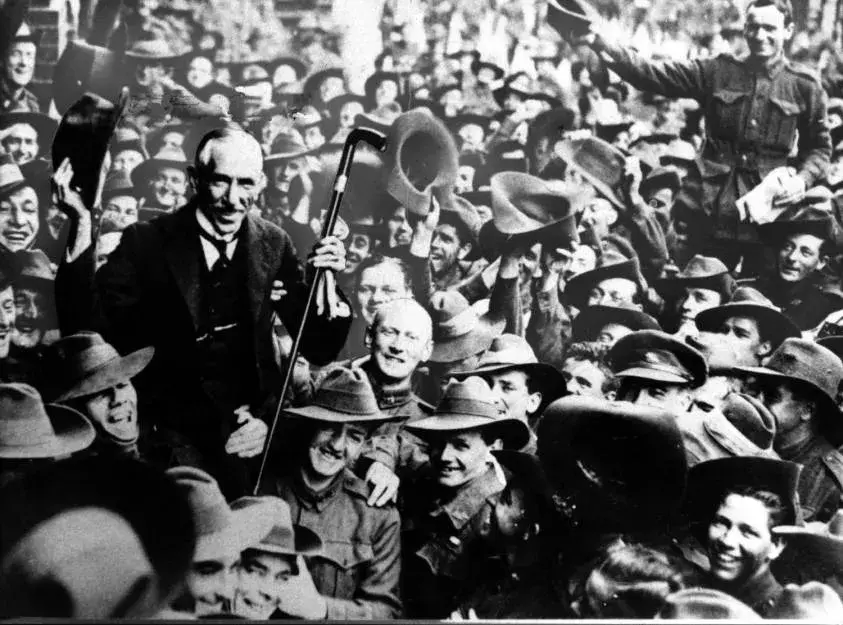BILLY HUGHES
Member of the Privy Council (1916), Order of the Companion of Honour (1941)
Billy Hughes became Australia’s seventh prime minister after Andrew Fisher, leader of the Australian Labor Party, resigned from office.
25 September 1862
London, England
28 October 1952
Sydney, New South Wales
Elizabeth Hughes
Mary Hughes
Nationalist
Photo: Fairfax
About
Billy Hughes may have been small in stature but, on any measure, he lived a large life. His biographer L.F. Fitzhardinge wrote that ‘almost the whole of Hughes’ life was passed in an atmosphere of controversy.’ Hughes' passions and positions led him to be expelled from three parties and play a leading role in forming three other parties.

Photo: Fairfax
Hughes was raised in London and Wales and served a brief stint with the Royal Fusiliers regiment, as well as working as a student teacher, before opting for a life in Australia. He arrived in 1884 and his early itinerant life in outback Queensland and later in Sydney was extremely harsh, forcing him to take jobs including railway stonebreaker, cook, boundary rider, seaman, umbrella mender and bookseller to make ends meet.
In 1891 Hughes became involved in the formation of Labour Electoral Leagues. Hughes was lukewarm on Federation, but realising its inevitability stood for, and won, the seat of West Sydney in 1901. Hughes was Minister for External Affairs in the Watson Labor ministry in 1904 and Attorney-General and Deputy Leader in the Fisher Labor government.
Hughes was elected prime minister in October 1915 after Fisher resigned. As wartime leader Hughes divided opinion, viewed either as a great patriot and ‘Little Digger’ by returned servicemen, or as an opportunistic warmonger who pushed for conscription.
At the Versailles Peace Conference in 1919 Hughes famously defied the great powers to ensure that Australia would be independently represented and protected against any future ambitions of Germany and Japan. Hughes served in the first Parliament in 1901 and remained there for a record 51 years and 7 months.
MILESTONES
Australian Wheat Board
The federal government takes control of state wheat boards on 1 December 1915 to ensure efficient supply and marketing of the Australian wheat crop to meet increasing wartime demands.
National shipping line
The government establishes the Commonwealth Shipping Line on 28 June 1916 with the purchase of 15 steamers from Great Britain. The ships will transport Australian wheat and wool to Britain as part of the war effort.
Armistice Day
The First World War ended on 11 November 1918. Australia has suffered approximately 60,000 official casualties. Armistice Day is established in 1919 to remember the losses, and observed each year with a minute of silence at 11am.
War Service Homes
On 6 March 1919 the Commonwealth War Service Homes Commission is created. It provides low cost housing, and mortgage and rent assistance, for returned soldiers.
Treaty of Versailles
Prime Minister Billy Hughes signs the Treaty of Versailles at the Paris Peace Conference on 28 June 1919. The treaty establishes the League of Nations, with Australia becoming an independent member of the world’s first intergovernmental organisation.
Nauru Mandate
An agreement between Great Britain, New Zealand and Australia is signed on 2 July 1919 for the Australian administration of Nauru. Australia sought control of Nauru at the Paris Peace Conference, having captured the island from Germany in 1914. In 1920 it is designated an Australian mandate by the League of Nations.
Aviation prize
On 10 December 1919 Australian aviators Ross and Keith Smith win the prize money offered by the federal government for the first flight from Britain to Australia. They successfully land their Vickers-Vimy aircraft in Darwin after the 28 day flight.
360° VIEW
Parliament
The bulk of the legislation passed by the Hughes government was designed to increase its power to conduct the war. There was an emphasis on securing public safety and exercising enhanced federal powers over defence.
Increased expenditure on defence meant the imposing of the first federal income tax, along with probate and succession duties. The conclusion of the war meant that attention turned to reconstruction, with the passing of legislation to provide for repatriation, war service homes and industry assistance.
The Commonwealth Police Force was established by legislation in 1917 after Hughes was pelted with eggs at a conscription rally and in 1918 the Electoral Act established preferential voting. Hughes’s well known lack of patience combined with his energetic prosecution of the war often led him to disregard the finer details of policy formulation.
As part of this strategy he was not beyond making cunning use of his deafness and the inadequacy of his rudimentary hearing aid.

Photo: News Ltd/Newspix

